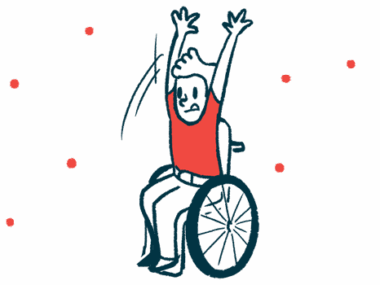Evrysdi for SMA now approved in Europe for use in all ages
EC extends treatment approval to infants younger than 2 months
Written by |

The European Commission (EC) has extended its approval of Evrysdi (risdiplam) to treat babies with spinal muscular atrophy (SMA) who are younger than 2 months old, making the therapy now available to treat SMA patients across all age ranges in Europe.
Evrysdi was first approved in the European Union in 2021 for use at home in patients 2 months and older with either SMA type 1, type 2, or type 3, or those with up to four copies of the SMN2 backup gene.
With this extension, the EU catches up with the U.S., where Evrysdi is approved to treat all types of SMA in patients of all ages — ranging from newborns with no symptoms (presymptomatic) to older adults.
An extension was anticipated after last month’s positive opinion by the European Medicines Agency’s Committee for Medicinal Products for Human Use, recommending the use of Evrysdi from birth.
“With this label extension, we can treat babies soon after birth with Evrysdi, allowing them the greatest chance to achieve the milestones of sitting, standing and walking, similar to healthy children,” Levi Garraway, MD, PhD, chief medical officer and head of global product development at Roche, said in a press release. Roche helped develop and now markets Evrysdi through its wholly owned subsidiary, Genentech.
Label extension by European regulators based on Phase 2 trial data
SMA occurs due to mutations in the SMN1 gene, which provides instructions for a protein called survival motor neuron, or SMN. Without enough SMN, motor neurons — the nerve cells that control movement — die, causing muscle weakness.
As time goes on, more motor neurons are lost, leading to increased muscle weakness and functional decline. Therefore, the quicker the diagnosis and the earlier the treatment, the better the outcome is for people with SMA.
“Preserving motor neurons from the earliest age possible and preventing their irreversible loss can have a substantial impact on a person’s future ability to move and function,” said Nicole Gusset, president and CEO of SMA Europe, an umbrella group of patient organizations working to find new treatments.
The SMN2 backup gene also contains instructions for SMN, but it falls short of making as much functional protein as SMN1. More copies of SMN2 generally lead to milder symptoms of SMA, as these additional copies can help make more SMN.
Taken daily by mouth or a feeding tube, Evrysdi works by modulating the activity of SMN2 to allow more SMN to be produced. This increases the survival of motor neurons, thereby easing symptoms of the disease and slowing its progression.
The SMA community welcomes the European Commission’s decision to extend the use of Evrysdi from birth. We look forward to continued collaborative efforts to improve diagnosis, including newborn screening, and ensuring all individuals living with SMA have access to medicines.
The decision by the EC — the EU’s regulatory body for medications — to approve an extension of Evrysdi’s indication covers all 27 member states, and Norway, Iceland, and Liechtenstein. It was based on interim data from the ongoing RAINBOWFISH (NCT03779334) Phase 2 clinical trial.
That data came from 18 presymptomatic babies enrolled before they were 6 weeks old, and included six infants with two or three copies of the SMN2 gene who had completed at least one year of study assessments.
All six babies included in the analysis were able to sit after one year of treatment with Evrysdi. Four (67%) could stand and three (50%) could walk independently within timeframes typical of healthy babies. All babies were alive at one year without the need for permanent ventilation.
The safety profile of Evrysdi in these presymptomatic babies was similar to what was observed in earlier trials with symptomatic infants. The most common side effects were fever, diarrhea, rash, and nose, throat and lung infections. Some participants also experienced constipation, vomiting, and cough.
“The SMA community welcomes the European Commission’s decision to extend the use of Evrysdi from birth,” Gusset said, adding, “We look forward to continued collaborative efforts to improve diagnosis, including newborn screening, and ensuring all individuals living with SMA have access to medicines.”




